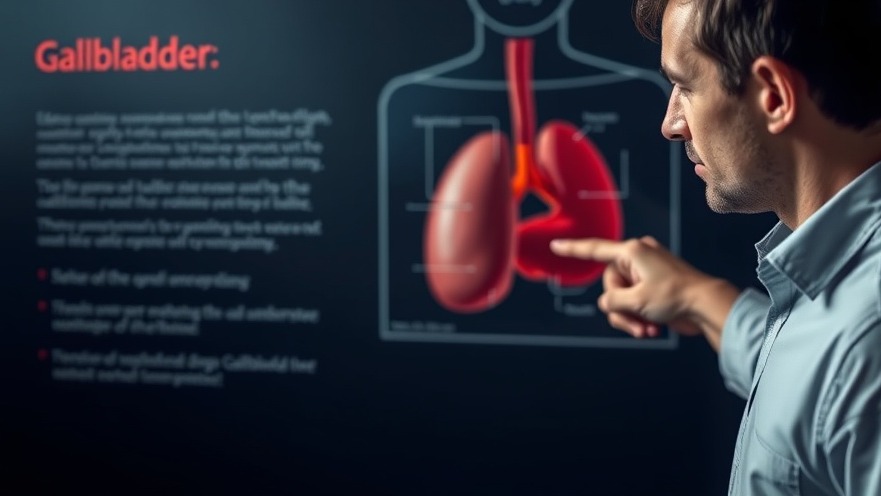
The Importance of the Gallbladder: Why You Should Think Twice Before Surgery
If you're facing the prospect of gallbladder surgery, it’s vital to understand the importance of this often-overlooked organ. Many believe that gallbladder removal is a straightforward solution to gallstones and other issues, but as recent discussions highlight, the truth is far more nuanced. The gallbladder plays critical roles in digestion and overall health.
In Never Get Your Gallbladder Removed, the discussion dives into the complexities of gallbladder health, exploring key insights that sparked deeper analysis on our end.
Understanding Gallbladder Function
Essentially, the gallbladder acts as a reservoir for bile, a substance produced by the liver that helps in digesting fats and absorbing fat-soluble vitamins like A, D, E, and K. It also regulates excess cholesterol and aids in detoxification. Without a gallbladder, bile flows continuously into the intestine, potentially leading to challenges in fat digestion and nutrient absorption. This lack of storage can result in digestive difficulties, making the gallbladder much more than a simple storage pouch.
The Risks of Gallbladder Surgery
Over 3,000 gallbladder removal surgeries occur daily in the U.S., but many of these procedures are performed without fully considering the risks involved. For many patients, the post-surgery complications can be severe and long-term, including an increased risk of various cancers and digestive issues such as chronic diarrhea and bloating. Understanding these risks is critical before undergoing surgery.
Exploring Alternative Solutions
Not every gallbladder issue necessitates surgery. There are several options available to manage gallstones and related conditions. For instance, oral bile salts have shown promising results in dissolving gallstones without requiring surgical intervention. Additionally, dietary changes can play a significant role in preventing gallstones from forming and promoting gallbladder health. Foods rich in healthy fats, such as fatty fish, eggs, and olive oil, encourage bile production and can lead to better digestive health.
Diet: A Key Player in Gallbladder Health
Diet significantly impacts gallbladder function. A lifestyle that includes a balanced intake of fats is crucial for bile production and regulation. Avoiding low-fat diets can prevent the reduction of cholesterol necessary for bile synthesis. Including bitter greens and citrus fruits can stimulate bile release, improving digestion. Moreover, managing weight and avoiding high-carbohydrate diets can reduce insulin levels that negatively affect gallbladder health.
Mindful Living: The Connection Between Stress and Gallbladder Health
Another significant factor to consider is stress levels. Chronic stress can affect hormonal balance and bile production. Engaging in relaxation techniques such as yoga, tai chi, or guided imagery can enhance mental wellness and indirectly support gallbladder function. Mindfulness activities can lower cortisol levels, which, when elevated, can impede bile production.
Making Informed Decisions: Know Your Options
As we revisit the topic presented in Never Get Your Gallbladder Removed, it becomes clear that thorough research and understanding of all options are crucial before proceeding with such a significant medical decision. Knowledge empowers patients to explore alternatives and advocate for their health, potentially avoiding unnecessary surgery.
Call to Action: Advocate for Your Health
If you or someone you know is considering gallbladder removal, take the time to investigate all available information and treatments. Consult with healthcare providers who prioritize comprehensive care, including dietary and lifestyle changes. Understanding your body and being informed can lead to better health outcomes.
 Add Element
Add Element  Add Row
Add Row 



Write A Comment